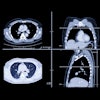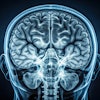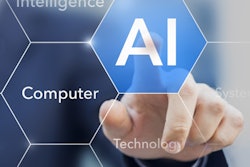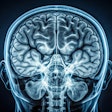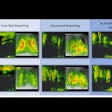Dear Artificial Intelligence Insider,
If a radiologist isn't available, clinicians may find it difficult to diagnose a normal versus an inflamed appendix on the CT exams of patients presenting to the emergency room with acute abdominal pain. To help, a South Korean research team has developed a deep-learning algorithm that yielded at least 90% accuracy for diagnosing acute appendicitis during both internal and external validation.
Although more development work still needs to be done on the model, the researchers believe it could potentially fill in for a radiologist if necessary, according to this edition's Insider Exclusive.
In other news this issue, a deep-learning algorithm has demonstrated strong performance for predicting cancer on breast ultrasound images. Also, an artificial intelligence (AI) model yielded 90% accuracy for automatically identifying hepatocellular carcinoma on liver MRI exams.
The COVID-19 pandemic could be a double-edged sword for the adoption of AI technology over the short- and midterm, according to Steve Holloway of health technology and market intelligence firm Signify Research. Speaking of COVID-19, AI algorithms were found to boost the diagnostic performance of CT for diagnosing COVID-19 pneumonia.
A free AI software application can triage suspected COVID-19 cases on chest radiographs. Another algorithm can predict how COVID-19 cases will progress based on analysis of baseline chest x-rays. AI could also enhance chest imaging's COVID-19 role.
Researchers have found that muscle metrics automatically extracted from chest CT exams could predict all-cause mortality over a six-year period in older men. And gender imbalance in the training sets used to train AI algorithms could result in computer-aided diagnosis applications that perform worse on imaging exams involving the other gender.
Meanwhile, functional and diffusion MRI represent a great opportunity for AI technology, according to a presentation at the recent virtual 2020 American Society of Neuroradiology meeting. AI can also enhance assessment of cancer treatment response on serial CT exams, as well as automatically evaluate the image quality of 3D whole-heart cardiac MR images. Furthermore, an algorithm can help radiologists improve their performance in detecting pancreatic cancer on CT studies.
In prognostic developments, a machine-learning algorithm can predict -- using data from resting-state functional MRI -- if a patient in a coma after cardiac arrest will regain consciousness. Furthermore, machine-learning algorithms can forecast outcomes from interventional radiology procedures based on analysis of nonimaging data. Another AI model was able to predict a patient's risk for Alzheimer's disease by analyzing brain MRI and nonimaging factors.
AI can also help to detect and quantify traumatic brain injury on CT, as well as differentiate normal and abnormal chest x-rays. However, a multinational research team expressed concern over the use of AI to improve image reconstruction.
Although it may take longer than initially anticipated, the useful integration of AI into clinical practice will happen, said Dr. Paul Chang of the University of Chicago during a talk at AuntMinnie.com's 2020 Virtual Conference.
Do you have an idea for a story you'd like to see covered in the Artificial Intelligence Community? Please feel free to drop me a line.



